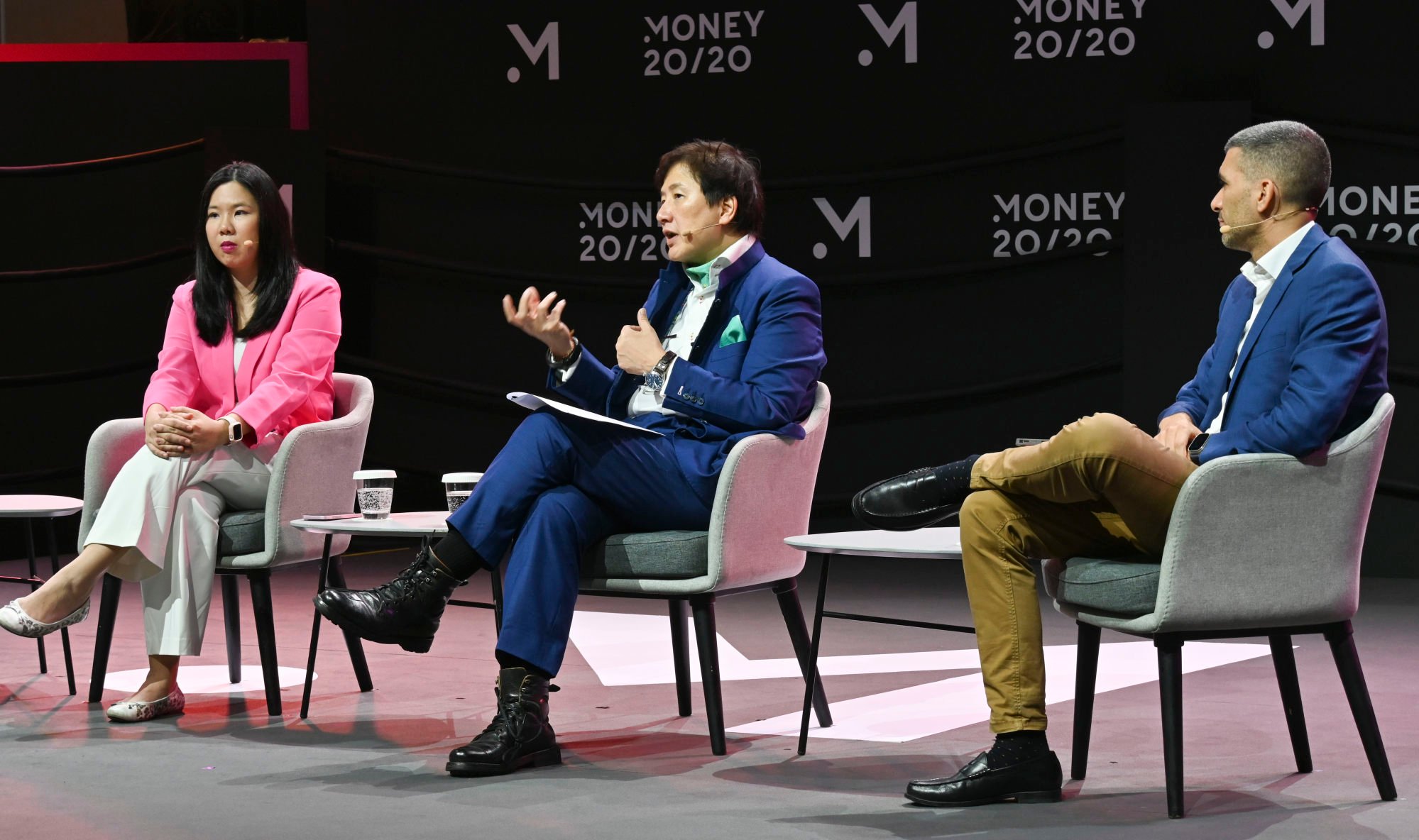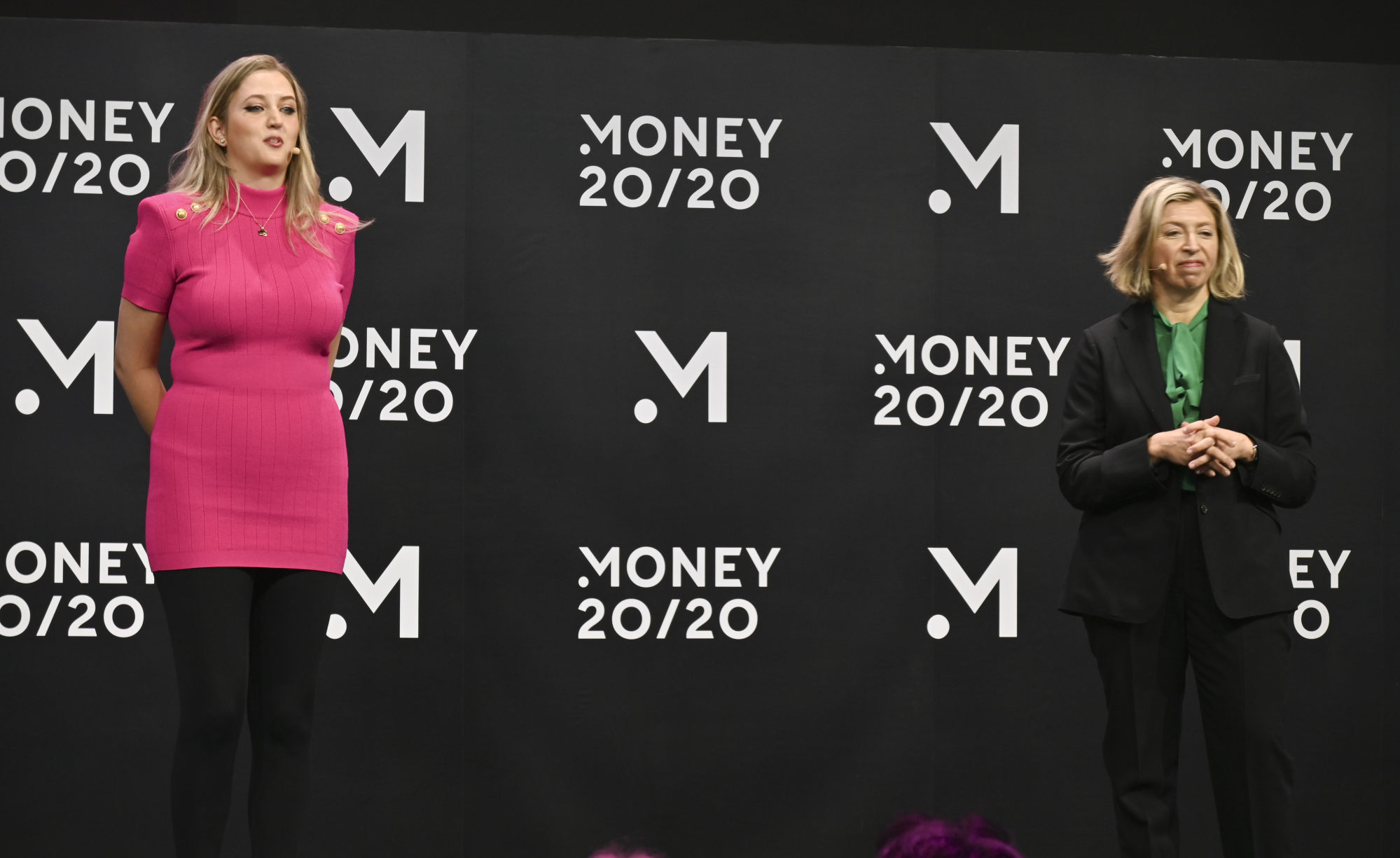
Blockchain still a hot topic at Money20/20 Asia, along with AI, even as interest wanes in other markets
- Blockchain made up about 15 per cent of the talks at Money20/20 Asia this year, just slightly below the proportion of talks on AI
- Markets like Thailand, where the show was held, still see a lot of potential for blockchain to help reduce costs associated with traditional finance
Blockchain technologies emerged as an important trend at an Asia fintech conference this week, along with artificial intelligence (AI).
Out of the 139 talks and panels at the first Money20/20 in Bangkok – and the first in Asia since a show in Singapore in 2019 – 22 were directly related to blockchain, digital assets and central bank digital currencies (CBDCs), according to the event organisers. AI was still the most talked about tech topic, with 25 sessions in the fintech category directly addressing it.
Asia’s strong interest in blockchain technologies marks a contrast to the US, where Money20/20 holds its flagship conference in Las Vegas. The Securities and Exchange Commission’s moves have dampened enthusiasm for Web3 in the world’s largest economy, conference attendees say, and focus has shifted largely to AI, an area in which the US has a leading position.
China acquired US-restricted Nvidia AI chips built in servers, tenders show
In Asia, “there’s still more of a focus on Web3, metaverse”, said Danny Levy, managing director of Money20/20 Asia. “We don’t see that at the other events. It’s not really a focus at all.”
Daranee Saeju, assistant governor of the Payment Systems Policy and Financial Consumer Protection Group at the Bank of Thailand, discussed the potential transformative effects of blockchain for developing economies.
“Imagine a world where payments are frictionless, borders are invisible, and money can move very fast, very cheap, convenient, secure and transparent,” Saeju said. “That’s the future we are researching here in Thailand.”
JPMorgan announced at the show a partnership with Kasikornbank, one of Thailand’s largest banks, to launch Project Carina, which will allow for fast cross-border payments. The system works by transferring Q-money tied to the Thai Baht on Kasikornbank’s Quarix blockchain to JPMorgan’s JPM Coin on that bank’s Onyx blockchain. The goal is to reduce average transaction times from 72 hours to five minutes, the companies said.

“Spending a lot of time with senior banking execs globally, blockchain is still a conversation now,” said Scarlett Sieber, chief strategy and growth officer at Money 20/20. The JPMorgan announcement comes after a decade of banks talking about working together on blockchain tech, she added.
Stablecoins were another big topic of conversation at the show, as companies prepare for coming regulations that could further legitimise the use of cryptocurrencies pegged to fiat currency like the US dollar (USD).
Ripple, which had a booth at the show, announced this month that it is launching its own USD-pegged stablecoin on both the XRP Ledger blockchain, created by the company, and Ethereum. “It’s about providing the option for another settlement currency easily through our network,” said Fiona Murray, managing director of Asia-Pacific (APAC) at Ripple.
As companies explore the opportunities in Thailand and the rest of Southeast Asia, though, many of the opportunities for infrastructure and business-to-business companies like Ripple are in mature financial markets. Ripple’s biggest markets in APAC are Singapore, where it has its regional headquarters, Hong Kong and Australia, Murray said.
Attendees from Hong Kong were also searching for what opportunities in Southeast Asia mean for the city that has been making a big push to become a Web3 and cryptocurrency hub.
“You heard Bank of Thailand’s aspirations. That’s a lot,” Angelina Kwan, a Hong Kong-based senior adviser to IMC Asia-Pacific, said during a panel discussion about decentralised finance. “We should be worried in Singapore and Hong Kong, because Thailand wants to be a real leader in this area.”

Beyond talk around blockchain and AI – which dealt with topics like fraud prevention and regulatory compliance – it was clear that less buzzy and more familiar technologies remain at the centre of the fintech business.
A major theme of the show was financial inclusion. While some speakers touted the benefits of blockchain as a way of reaching and serving unbanked and underbanked populations – a big topic in Southeast Asia – others focused on more staid solutions.
WeLab, which operates the virtual WeLab Bank in Hong Kong and recently started a new joint venture in Indonesia called Bank Saqu, has been looking at opportunities in Southeast Asia for expanding credit. “In Indonesia, the access to credit continues to be one of the biggest challenges,” said Jessica Lam, chief strategy officer at WeLab.
HSBC, Hong Kong’s science park to join forces on fintech development
WeLab, which also operates in mainland China, has sought for its online banks to be more nimble and agile than larger financial institutions, but it is still offering more traditional financial solutions than are typically found in discussions wrapped up in blockchain hype.
“Buzzwords aside, I think it’s about relevance so far,” Lam said. “Is there a meaningful advantage that some of these new technologies and techniques bring? If so, we will incorporate them into our business.”
Money20/20 Asia returned for the first time in five years, but it switched locations. After cancelling its last Singapore show planned in 2020 because of Covid-19, it has now signed a three-year deal with Thailand to host the regional show in Bangkok.
Attendance surpassed 3,000 people this year, the organisers said, in line with expectations and the 3,100 that attended the 2019 event in Singapore. The last events in Amsterdam and Las Vegas had more than two and three times the number of attendees, respectively, according to the organisers.

